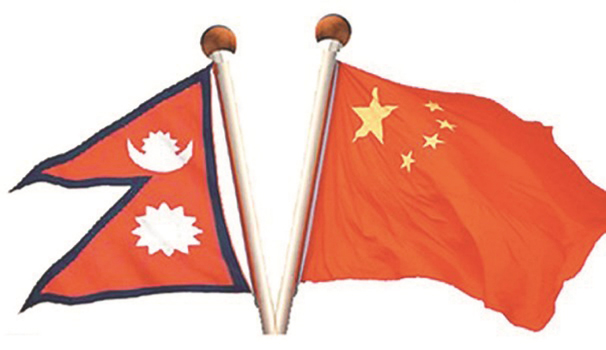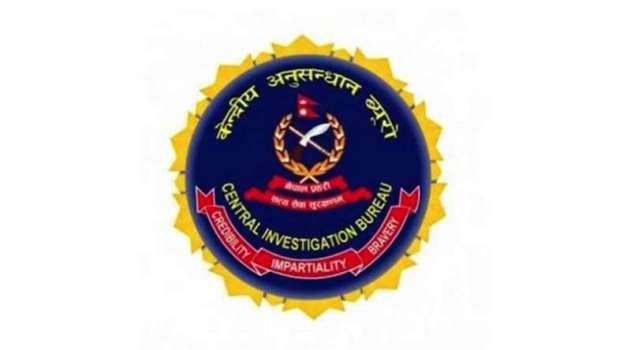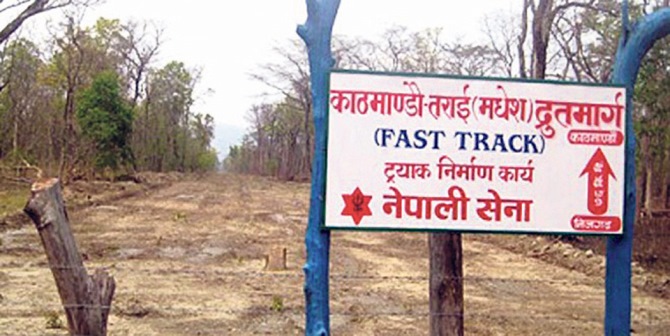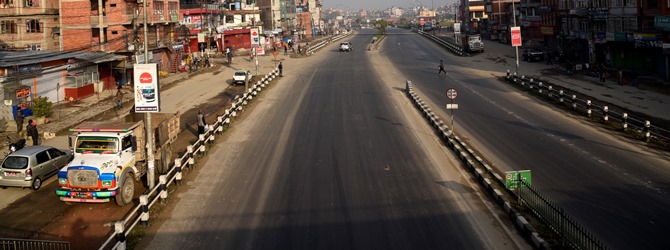Mutual Legal Assistance Enhancing Nepal-China security cooperation

Purushottam P. Khatri
Nepal and China had inked Mutual Legal Assistance (MLA) protocol in October, 2019 with a view to enhancing security cooperation between the two nations. There was an initial inkling about its implementation but the government officials and security experts see the protocol as the foundation to exchange criminal records, collect proofs and establish criminal connection of individuals or groups of both the nations. Based on the criminal records prepared by Nepal Police Headquarters, over 242 Chinese nationals were arrested on different charges in the last five years.
In December last year, Nepal Police carried out the largest operation against any foreign national in the history of Nepal. It busted 122 Chinese nationals from Kathmandu for their involvement in different criminal activities. Nepal Police has claimed that over 800 Chinese nationals are currently under their watch. In September, five Chinese nationals were rounded up for hacking and stealing money from Nepali ATMs in September. At a time when we are talking about porous yet unregulated border between Nepal and India, border points adjoined with China are also getting equally sensitive and critical for the past several years. Against this backdrop, the MLA protocol has come into operation to thwart any security threat.
Milestone
“The protocol will be a milestone in controlling criminal activities that pose a threat to the life and property of the people from both nations,” said former Deputy Inspector General of Nepal Police Hemanta Malla Thakuri.
The protocol that was signed during Chinese President Xi Jinping’s visit to Nepal in October, 2019, has ended deadlock running for years. Both the nations were working to produce a common legal framework to fight the crimes happening in either side of the border.
According to Malla, this pact ensures that Chinese nationals committing crimes against China can be repatriated to their home country. “Usually, anyone who overstays here is subject to pay fine or arrest. However, with the enforcement of this agreement, any Chinese nationals residing here and wanted by Chinese authorities can be sent back their country over minor charge such as overstaying. This sounds to be an extradition pact,” Malla said.
Dr. Indra Adhikari, security analyst, said although the protocol could be viewed as positive step, there always remained confusion regarding the citizens of the third countries. “The protocol does not speak about the non-Chinese nationals who commit crime against China while staying her.”
Also, in another context, it would be questionable as to how Nepal would react if the state’s apparatus was mobilised to make mass arrests of Indian nationals on Nepali soil upon the request of India. “This recent action sets a dangerous precedent,” she claims.
According to Nepal Tourism Board data, more than 134,000 Chinese tourists visited Nepal between January and October of 2019, up 9.2 per cent from the same period in 2018. The two countries share 1,414 kilometres long border in the Himalaya range of the northern side of Nepal.
Meanwhile, Dhanaraj Gnyawali, joint secretary and spokesperson at the Ministry of Law, Justice and Parliamentary Affairs, said prior to signing the pact, both the nations were facing legal obstacles with regard to sharing criminal records and information of the suspects who usually stay abroad and do harm to their home countries.
According to him, the protocol did not need to be endorsed by the House of Representatives. The government should just notify the parliament to make sure that lawmakers have access to it. The protocol was registered at the House of Representatives on January 17 this year.
The protocol was prepared and signed in conformity with Mutual Legal Assistance Acts of both nations, Gnyawali said. Nepal has its own Mutual Legal Assistance Act of 2014. Former Home Secretary Prem Kumar Rai said that MLA protocol was not concentrated in bringing or exchanging criminals but it was about bringing and sharing criminal records and the proofs associated with specific cases.
Former DIG Malla also suggested that the protocol should not be understood extradition treaty signed between Nepal and China. He said that the protocol would be helpful in curbing inter-country criminal activities and conducting crime investigation in support of security officials of both the nations. “Such protocol can be reached between one or more countries so Nepal can sign similar type of protocol with another nation as well,” he said.
Information sharing
Spokesperson and DIG of Nepal Police Shailesh Thapa Chhetri said that the protocol would be crucial in controlling crime and illegal trading like gold smuggling, animal hides, smuggling of valuable herbs and herbal plants and illegal other online business including cybercrimes. Thapa said that continuous information sharing on criminal matters pertaining to the mutual interest of the two countries, better communication, and establishment of trust and confidence can ensure the effective implementation of the protocol.
Nepal and China are close friend and next door neighbours. Both have shared cordial relations since the time immemorial. Their relations have gone from strength to strength with the establishment of diplomatic ties in 1955. Both are striving to boost their bilateral bonhomie by building the Trans-Himalayan Multi-dimensional Connectivity Network under the Belt and Road Initiative (BRI), a global development strategy unveiled by Chinese President Xi in 2103. MLA is expected to further boost security cooperation and exchanges between the two nations.
(Khatri is the TRN journalist)
Recent News

Do not make expressions casting dout on election: EC
14 Apr, 2022
CM Bhatta says may New Year 2079 BS inspire positive thinking
14 Apr, 2022
Three new cases, 44 recoveries in 24 hours
14 Apr, 2022
689 climbers of 84 teams so far acquire permits for climbing various peaks this spring season
14 Apr, 2022
How the rising cost of living crisis is impacting Nepal
14 Apr, 2022
US military confirms an interstellar meteor collided with Earth
14 Apr, 2022
Valneva Covid vaccine approved for use in UK
14 Apr, 2022
Chair Prachanda highlights need of unity among Maoist, Communist forces
14 Apr, 2022
Ranbir Kapoor and Alia Bhatt: Bollywood toasts star couple on wedding
14 Apr, 2022
President Bhandari confers decorations (Photo Feature)
14 Apr, 2022





.jpg)



